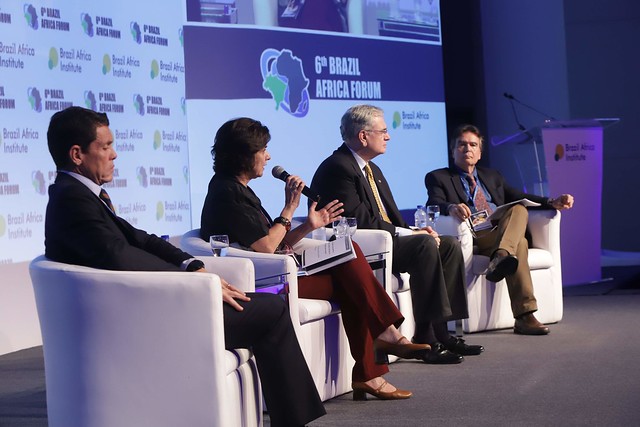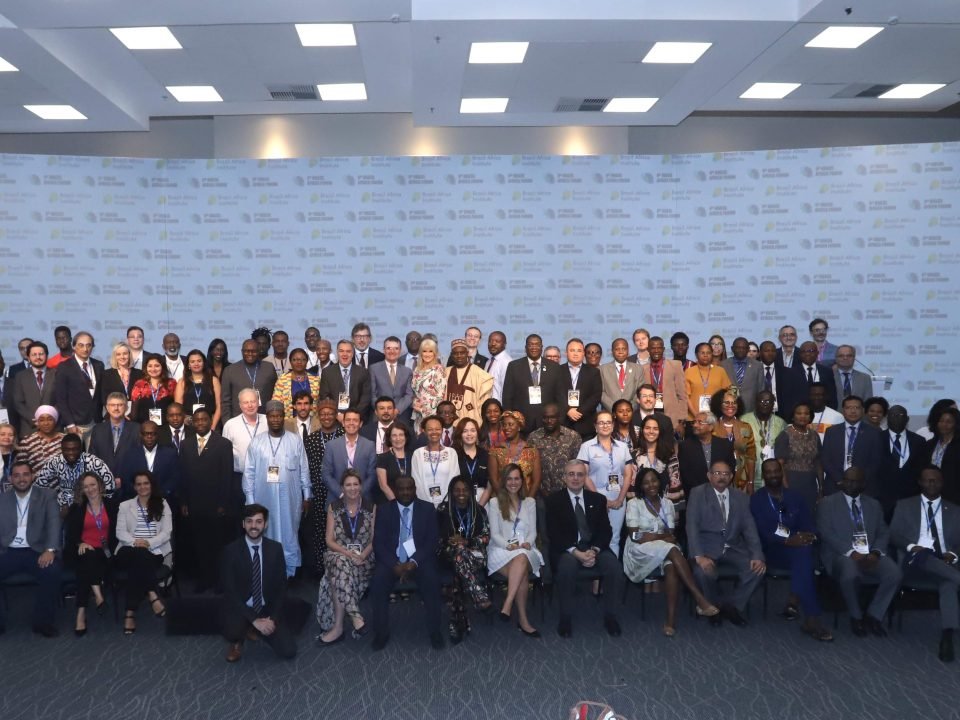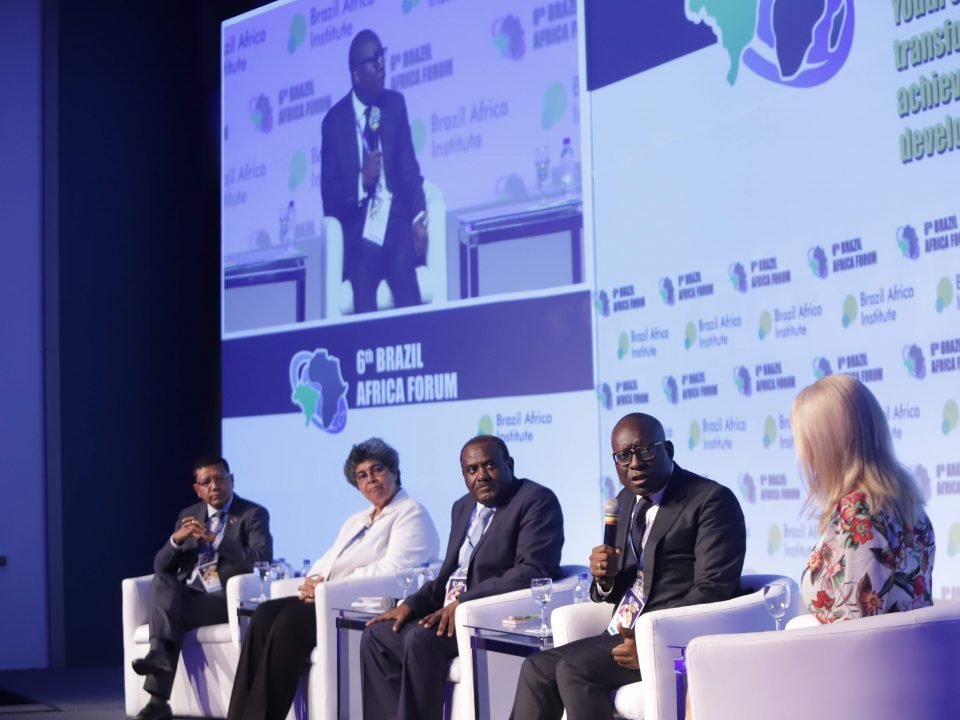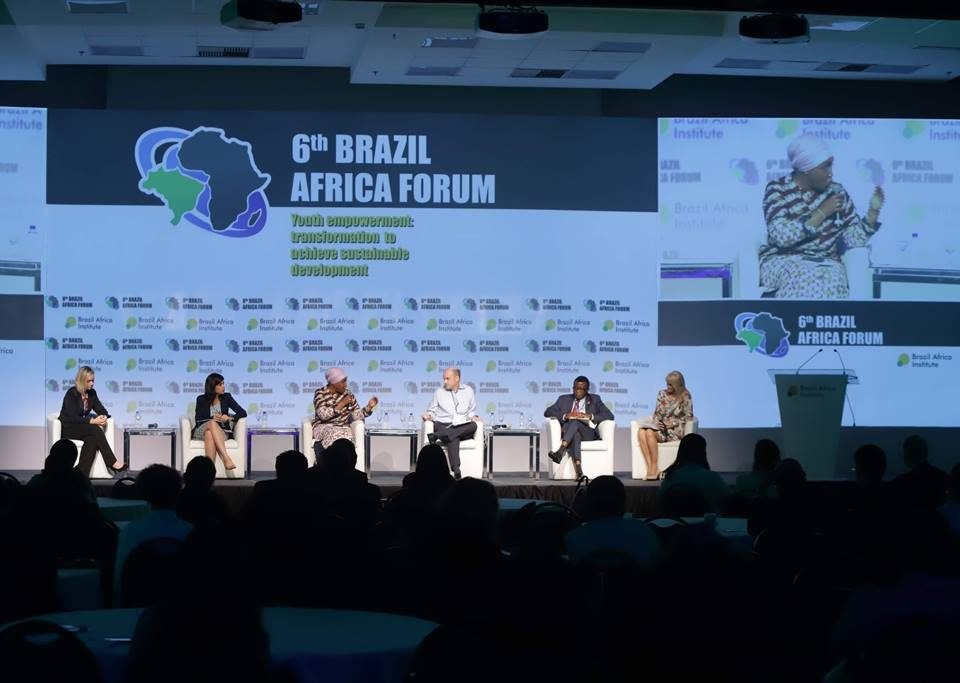South-South and Triangular Cooperation for health and development highlighted in the 6th Brazil Africa Forum

IBRAF and Fiocruz announce a partnership and launch course for young Africans in 2019
22 de novembro de 2018
6th Forum Brazil Africa brings debate on trade and investment flows between Brazil and Africa
23 de novembro de 2018At the end of the first day of the 6th Forum of Brazil, the South-South and Triangular Cooperation for Health and Education panel was moderated by the former Minister of Health of the Republic of Brazil and Adviser of Unitaid, José Gomes Temporão, who took advantage of his speech to highlight, among other points, the work carried out in partnership between Brazil, Cuba, and Canada, as well as other countries in Europe, in the restructuring of Haiti’s health network after the earthquake of seven degrees of magnitude occurred in 2010.
![]() Jorge Chediek, Director of the United Nations Office for South-South Cooperation, stressed that the cooperation is not only government-to-government but also includes the private sector, civil society, and academia. According to the director, some of the developed countries are accustomed to receiving assistance and not giving assistance. “We are making an effort in our office to partner and identify how we can assist in this cooperation, to share best practices and duplicate their effects,” he said. Chediek also said that a lot is still to be done to enable the current international architecture to allow this model of cooperation.
Jorge Chediek, Director of the United Nations Office for South-South Cooperation, stressed that the cooperation is not only government-to-government but also includes the private sector, civil society, and academia. According to the director, some of the developed countries are accustomed to receiving assistance and not giving assistance. “We are making an effort in our office to partner and identify how we can assist in this cooperation, to share best practices and duplicate their effects,” he said. Chediek also said that a lot is still to be done to enable the current international architecture to allow this model of cooperation.
For Nísia Trindade, President of the Oswaldo Cruz Foundation, it is necessary to overcome the conditions of inequality in order to think about sustainable development in South-South Cooperation. The manager said, citing some authors, that underdevelopment is not the absence of development, but a product of it. “Recently, Agenda 2030 places development as a human right and the eradication of poverty as a condition for it. From this vision of sustainable development, there is the strongest theme of South-South Cooperation “. According to her, in the case of the Oswaldo Cruz Foundation, the vision is focused on global health and cooperation on horizontal bases of exchange between countries. “The great challenge is the sustainability and continuity of the programs. A river is a good metaphor for the Atlantic Ocean and it is these bridges that we should seek to build in an event like this, “he concluded.
Maurício Cysne, Director of External Relations at Unitaid, explained the agency’s role in fostering innovation in health. The work of Unitaid, according to the director, does not correspond to the funding of basic research, but to the work in conjunction with the Oswaldo Cruz Foundation. “We are not going to be able to overcome the gulf in development if we do not have the young people on the supply side, using everything they know in technological terms. This technological issue creates a bridge that transforms the Atlantic into a stream, “said Maurice Cysne.
More photos:







